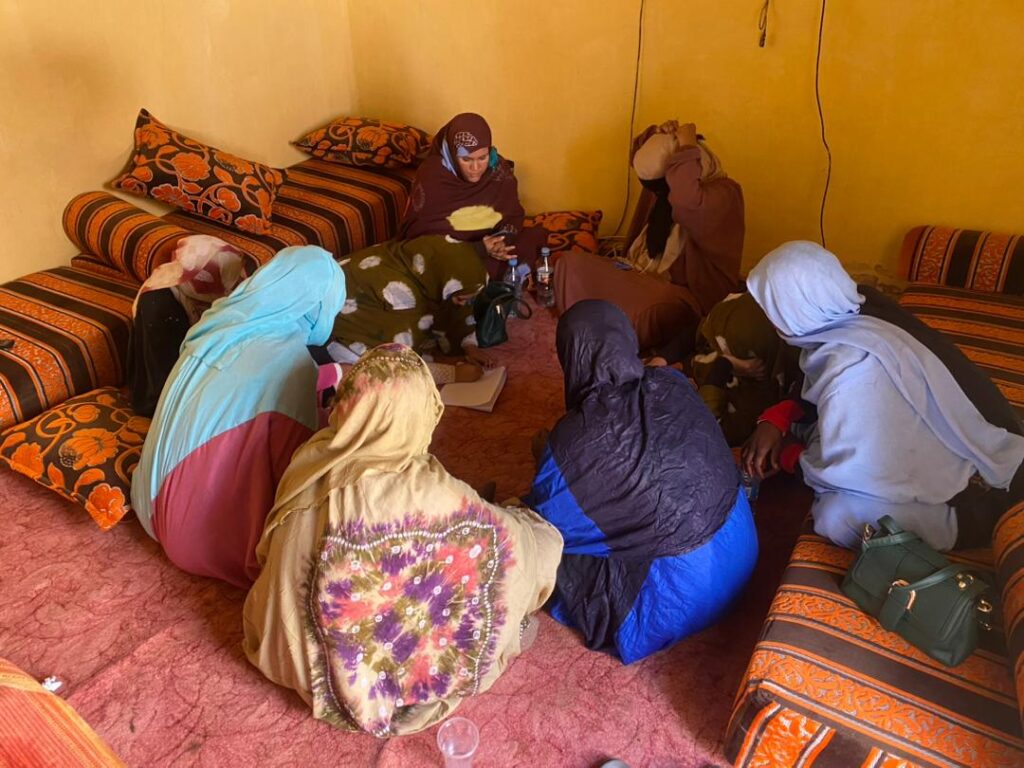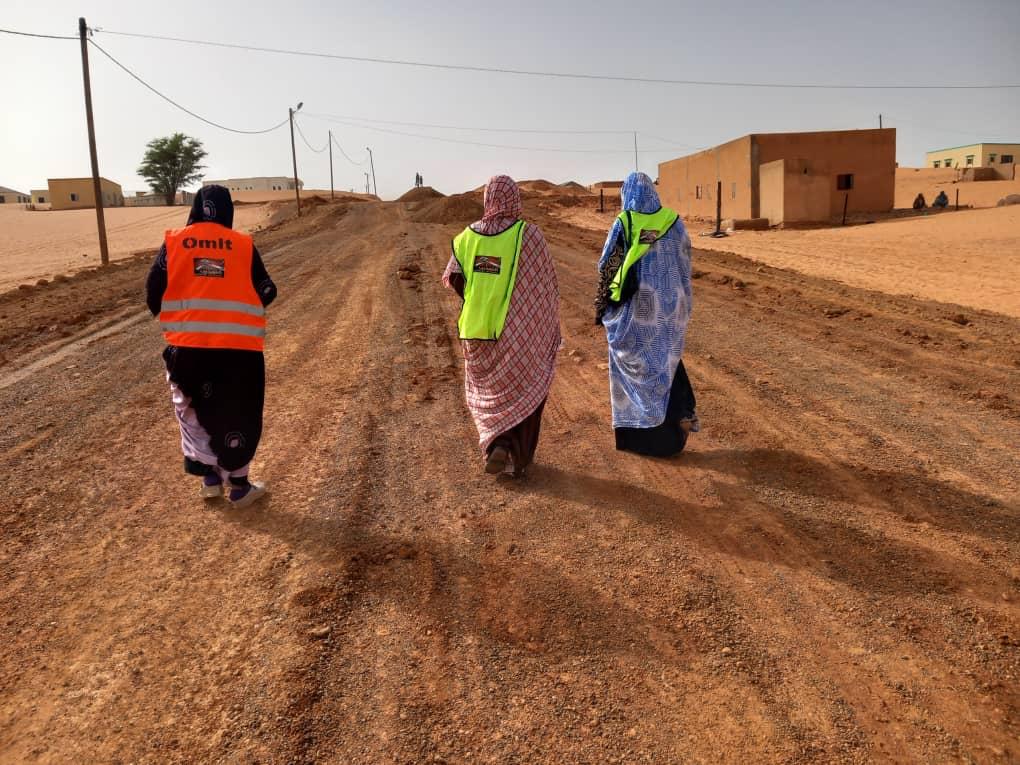Co-authors: Kyle Rogers, Nasserdine Diallo, and Lior Miller
Women leaders in Mauritania, such as members of community-based and civil society organizations, women’s groups, mothers, and grandmothers, are central role models and influencers in their local communities: “Their involvement strengthens the legitimacy and credibility of vaccination initiatives, which can help increase public confidence in vaccination programs and help promote gender equality and the empowerment of women by allowing them to play an active role in promoting the health and well-being of their community.”
New Approaches Needed to Increase Vaccine Demand and Coverage
In Mauritania, following national COVID-19 vaccination campaigns, an estimated 44% of the population was partially vaccinated against COVID-19, and 32% of the population had completed the initial vaccine protocol.[1] Although these figures were in line with the average completely vaccinated rate of 33% across Africa, Mauritania’s COVID-19 vaccination coverage remained unacceptably lower than the global average of 69%.[2] Mauritania’s vaccination system faced multiple challenges in increasing overall vaccination demand, including accessibility issues for targeted populations, a shortage of trained health professionals, and widespread vaccine misinformation, which eroded public trust. These challenges were particularly acute in geographically remote populations, where the lack of trained healthcare personnel and infrastructure was more pronounced.
To increase vaccine demand and coverage, the Accelerator collaborated with key institutions in the Ministry of Health (MoH), utilizing a systems approach to improve the capacity of key government and civil society structures. Through co-creation and community dialogue in targeted rural communities and at the national level, stakeholders determined that strengthening routine immunization for children, alongside integrating COVID-19 vaccination into the routine system would be the most effective way to equitably increase vaccination demand and combat “COVID fatigue.”
New Roles for Women Leaders and Civil Society
Government partners, civil society, and the Accelerator’s local and regional team members collaborated to identify and develop priority strategies and activities. This co-creation process in communities focused on strengthening the capacities of CSOs and women leaders (femmes championnes), enhancing social mobilization, and promoting community engagement. Women leaders were identified as a key aspect of the strategy to increase vaccination demand.

As noted by the Expanded Programme on Immunization’s (EPI) consultant, Dr. Saleck, “The involvement of civil society is crucial to mobilizing communities, identifying unmet needs, and building confidence in vaccination programs. Civil society contributed significantly by raising awareness, collecting data on vaccination coverage, and mobilizing communities for vaccination.”

Strengthening their knowledge and skills surrounding vaccination and its promotion, the Accelerator facilitated the training of 90 local women leaders in communication strategies, social mobilization, and awareness-raising strategies to create a cadre of health ambassadors who could inspire and mobilize others within their communities. Following this training, the women leaders participated in vaccination supervision in collaboration with the EPI, where they would put their training to the test in the moughataas (districts) of Arafat, Boutilimit, and Dar Naim, working closely with the local health authorities.
Increased Vaccination Today and a Better Approach for the Future
Femmes championnes led vaccination promotion activities in their local moughataas, including house-to-house visits, educational talks, health center visits, and review of vaccination cards, resulting in the vaccination against COVID-19, along with the recovery of 5 zero-dose children and 27 children who had not completed their routine vaccine series. In addition, 1,128 individuals participated in educational sessions on the importance of vaccination and its benefits. This proof of concept of involving femmes championnes is now being considered for scale-up and continuation in other communities.
Beyond those direct beneficiaries, Isselmou Hanefi, President of the civil society group for vaccine promotion VACNET, pointed to the Accelerator’s role in strengthening the involvement of women leaders in decision-making at the moughataa level by “promoting the active participation of women leaders in EPI routine vaccination supervision and other vaccination activities.” To this effect, Mr. Hanefi recommended “the continued participation of women leaders and civil society in routine EPI [vaccination] supervision” as a key initiative to continue following the Accelerator’s end.
The Accelerator’s approach to strengthening COVID-19 and routine vaccination demand while combatting vaccine hesitancy by collaborating with women leaders, civil society, and local communities has brought promising results for future vaccine promotion strategies in Mauritania. The EPI’s commitment to continuing to incorporate women leaders into its vaccination supervision and related activities will help sustain and scale the impact of this approach.




